Uttarakhand ‘Police Uncle’ Helps 1700 Kids Escape Cycle of Poverty, Begging & Violence
Uttarakhand DGP Ashok Kumar, through his programme Operation Mukti, has rescued and rehabilitated thousands of child beggars in the state The children, teachers, and the IPS officer share what this transformation has led to.
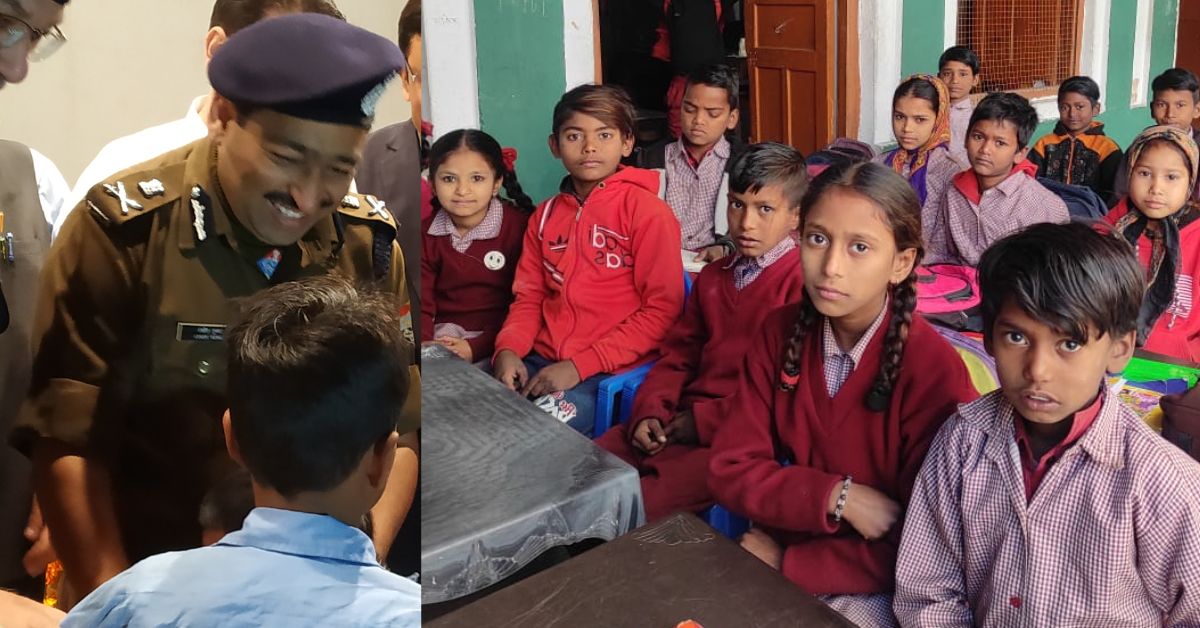
For 12-year-old Aakash, who hails from Dehradun and used to beg for alms until last year, education was only a distant dream.
This dream became a reality when he was enrolled in a government school. “Last year, police uncle enrolled me in this school. They gave me a uniform and books. I secured 83.6 per cent in my [annual] exams,” Aakash, who loves speaking English, tells The Better India.
“English and Math are my favourite subjects. I want to become a software engineer when I grow up. My father wants me to,” says the Class 4 kid, whose father does labour jobs to support his family. Due to the financial crisis, Aakash had been forced into begging.
The children of today are assets of tomorrow. But education – a fundamental right – remains a utopian fantasy for many oppressed and impoverished children who are pushed into begging, often by their parents. Their dreams crushed, thousands zigzag their way daily through crowds towards tea shops, markets, over bridges, signals, buses, and trains, begging for alms from every passerby with innocence in their eyes.
Since the decades after the Children Act 1960 came into force, child begging still remains a worry for the country.
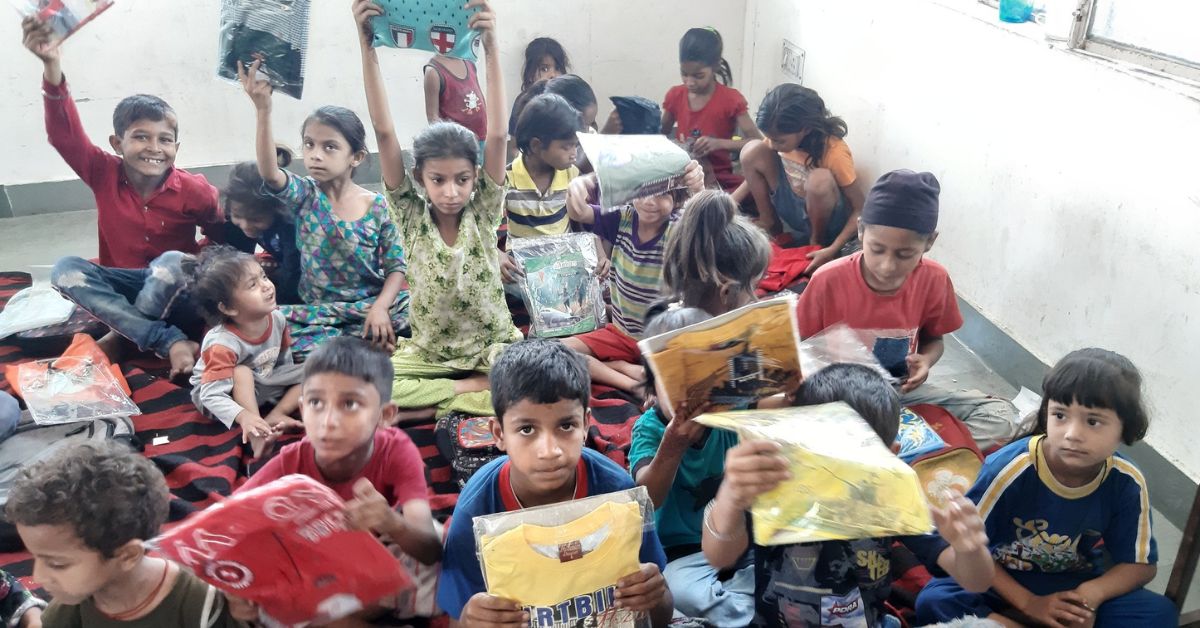
Mukti from begging
In a move to rid children of begging, the Director General of Police (DGP) Uttarakhand launched a special drive – Operation Mukti in 2017.
“Operation Mukti aims at mukti (liberation) from child begging and labour. We need to ensure their childhood is not ruined. People think that by giving these kids money, they are helping them. In fact, it is pushing them further into child begging,” the DGP Ashok Kumar tells The Better India.
“Bhiksha nahi, shiksha do,” he adds. The theme of the campaign is “Don’t beg, give education”.
What motivated Kumar was an incident when a child was begging in front of the police car, but instead of offering Rs 5 or Rs 10, the DGP wanted to find a better solution.
“We wanted to help them in an organised manner by ending this from the root. Due to a lack of education, some children could turn towards crime. Their going to school will also stop the tendency to crimes. We want them to connect in the mainstream,” says Kumar, who has been in the force for over 33 years.
The campaign, which is the DGP’s brainchild, aims to rehabilitate these children by enrolling them in government schools. Of over 4,000 child beggars in the age bracket of 5-15 years identified in the hill state, the DGP and his team of anti-human trafficking unit have rescued more than half from begging in the past five years, he says. Of these, 1,700 kids are presently at school — learning, playing and envisioning a better future.
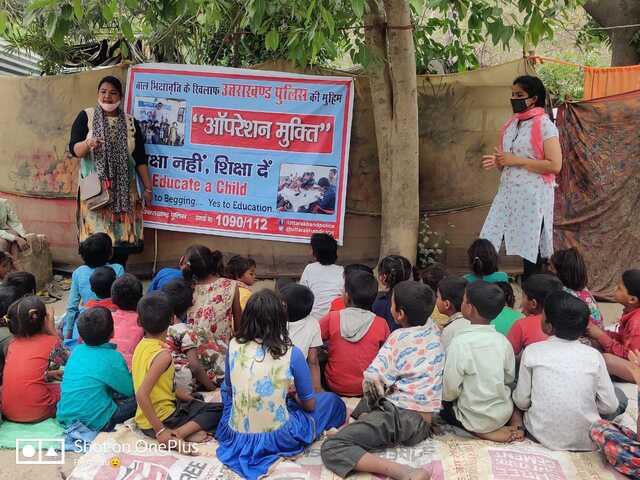
For a better tomorrow
“Last year, the police enrolled 19 kids in the age group of 6-11 years. They were into begging work or used to picking waste or selling balloons for money. These kids — Neha, Meena, Aakash, Karan — are devoted to studies more than any regular kids here. They have a past, are young, but have a hunger for education,” Indu Jyoti, Aakash’s teacher says.
“Such kids get a good environment in school. They are learning subtraction, multiplication, addition, counting, and learning tables. Thanks to the efforts of the police, these kids will be able to work towards a better future,” she adds.
How challenging is it for these children to adapt to the school environment with regular children? “Since these are very young children, it is not very difficult to teach them. In fact, their grasping power is good,” says Jyoti.
Giving an example of Class 2 student Neha, the teacher says, “You teach her anything once, and she will remember it, whether it’s Math or English. She is a very intelligent and bright girl.”
However, it is a little challenging to teach children who are money-oriented, or drug-addicted, she notes. “Even teaching them basic things becomes difficult, though we spend extra hours to make them comfortable in the school environment.”
Children constitute 14 per cent of the total beggars in the country, according to the Ministry of Social Justice and Empowerment. It is estimated that more than three lakh children across India are forced to beg, using everything from addiction to drugs, threats of violence and actual beatings.
In 99 per cent of cases, “We have found that children are forced into child begging by parents because they do not want to work. On average, a child gets Rs 500 a day from begging. This comes to a total of around Rs 15,000 a month. Even a daily wager earns less. So parents become idle and make their kids beg”, Kumar explains.
Therefore, sustainability becomes cumbersome.
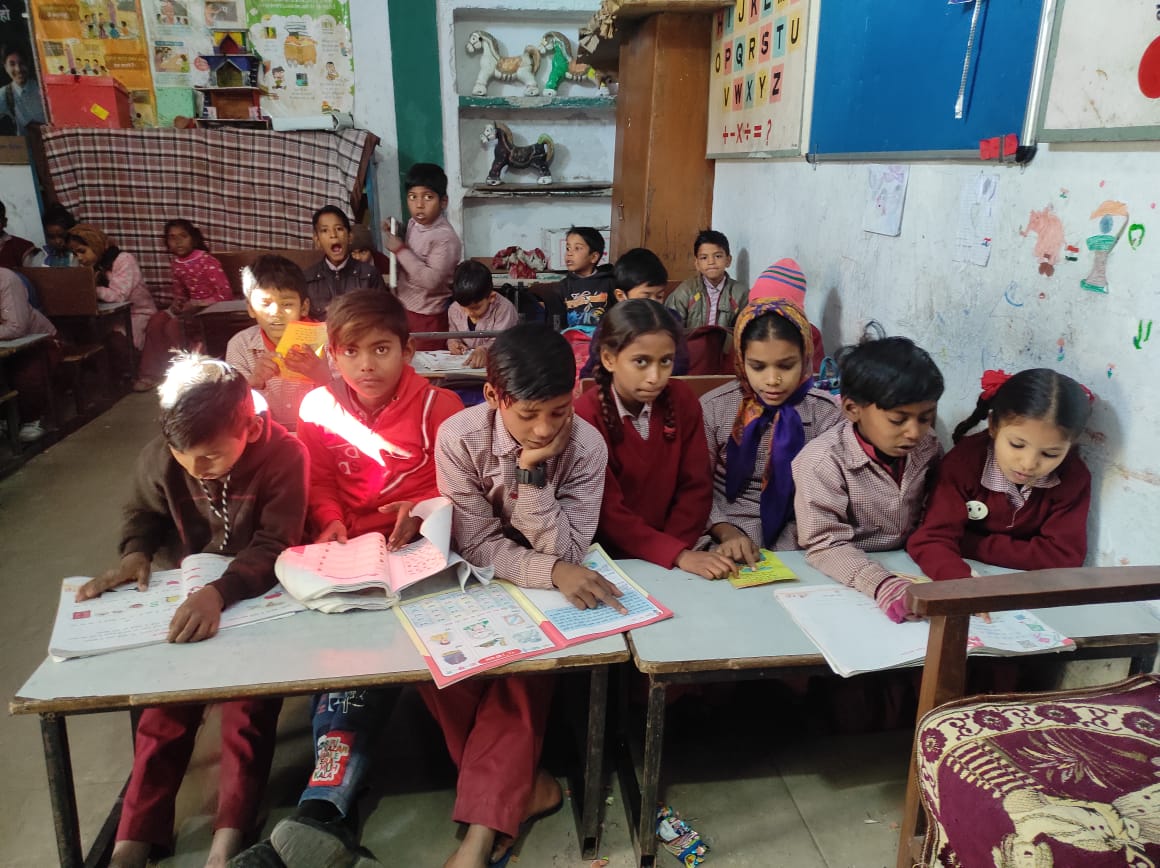
Finding solutions
“Identifying such children is easy. Enrolling and retaining them in schools is challenging. Many times, children drop out of schools where we enrol them. Parents remove them from schools forcefully. So we have to make consistent efforts. With regular follow-ups and counselling parents, we motivate them to work. In the initial phase, the dropout was 50 per cent, this has reduced to twenty per cent now,” says the DGP.
“Forcing kids to beg is a crime, and parents could be jailed for this. However, we try to counsel them because if we send them to jail, the innocent child would lose their caretakers,” says the lDGP. “But it does not mean, they can get away with committing crime again and again.”
Since sustainability is challenging, the police also counsel parents and encourage them to work. Apart from this, they also provide them with means to earn their livelihood. For instance, Asha, a mother of five, was given a sewing machine eight months ago.
“My husband died four years back. It was difficult for me to support the education of my children. Now with this income, I am able to look after my five children — four daughters and one son — and I save up to Rs 2,000,” the 30-year-old says.
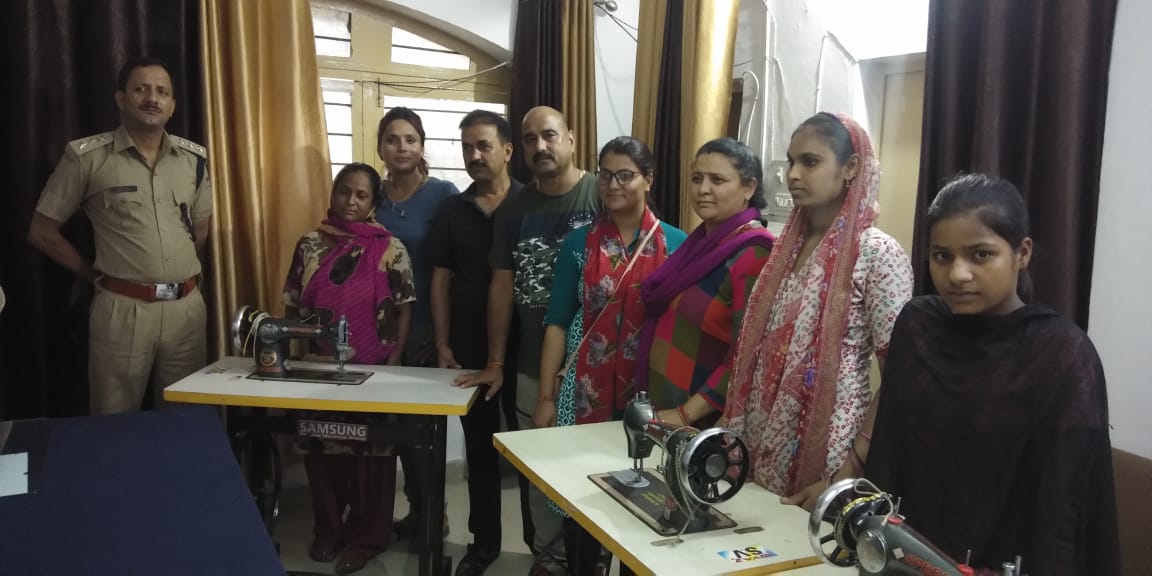
“My Chanda [aged 9] and Bhishan [aged 7] were enrolled in school this year. They were given uniforms, books, shoes, and water bottles. They [the police] did not take a single penny from us for this. Earlier, they would roam here and there but now they regularly go to school,” says the mother, who was going to cook lunch for her kids, who will be home soon after the school bell rings.
With the help of more than 100 police persons of the anti-human trafficking unit of the government, the DGP conducts awareness drives including organising nukkad natak (street plays).
“We have at least five police persons actively working on this campaign in all thirteen districts of the state. Sometimes our police personnel take time out to teach these kids to make them comfortable when they attend school. Many times kids escape from schools because they find it difficult to adapt to the environment,” says Kumar.
“We review the progress of the campaign and work concentrated in two months during January and February, the period before admissions are announced in April. It takes us around two months to identify such kids, counsel them and their parents, and enrol them in government schools,” says 59-year-old DGP.
In this campaign, people have also been made aware that they should do their duty by giving education to the children and not giving alms. “Police are not doing this alone. With citizen engagement, the police could make it possible. People have come in front and offered kids books and uniforms. Since we do not believe in opening a donation account, the public directly donates to the child. We do not take any financial support,” says Kumar.
“It’s a great satisfaction to see these children go to school. In the next step, we are trying to track brilliant kids out of these and support their higher education,” concludes the DGP.
The DGP’s work was also highlighted in the 2022 book titled Best Practices On Smart Policing – a book on the good work done by the police and other police organisations of different states across the country.
Edited by Divya Sethu.
If you found our stories insightful, informative, or even just enjoyable, we invite you to consider making a voluntary payment to support the work we do at The Better India. Your contribution helps us continue producing quality content that educates, inspires, and drives positive change.
Choose one of the payment options below for your contribution-
By paying for the stories you value, you directly contribute to sustaining our efforts focused on making a difference in the world. Together, let's ensure that impactful stories continue to be told and shared, enriching lives and communities alike.
Thank you for your support. Here are some frequently asked questions you might find helpful to know why you are contributing?
















